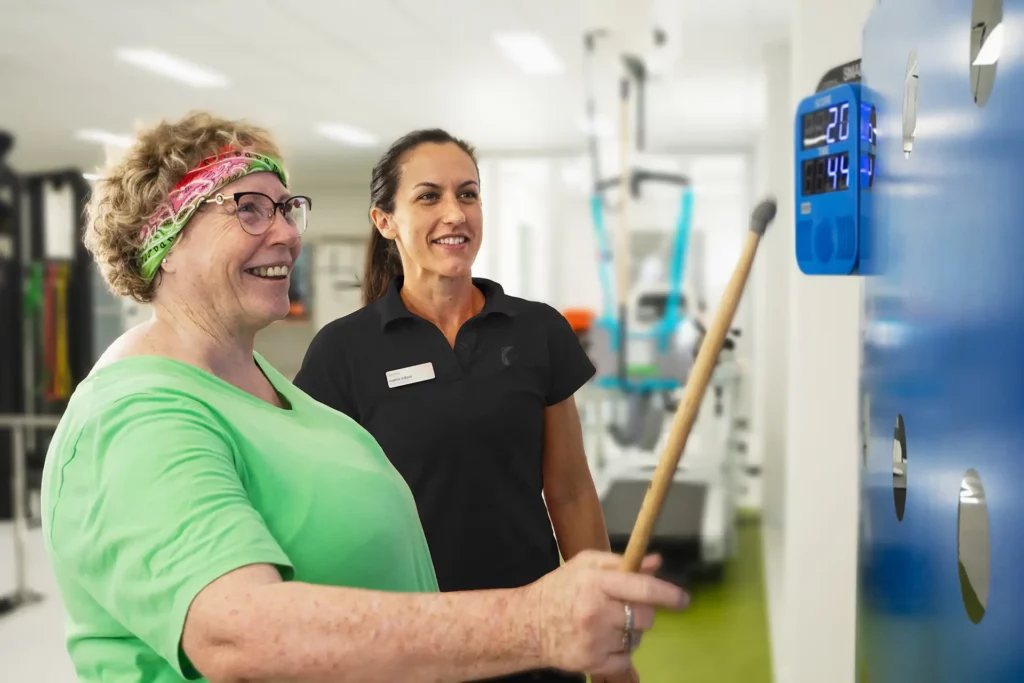Recovering from a neurological event such as a stroke, or an acquired brain or spinal cord injury, or managing a condition like Parkinson’s, multiple sclerosis, motor neurone disease, or Guillain-Barré syndrome affects everyone differently. Outcomes are shaped by the type, location, and extent of neurological damage, as well as each person’s life stage, goals, and what aspects of their daily life have been impacted.
At Royal Rehab LifeWorks Cairns, we combine rehabilitation technology with expert clinical care to deliver truly personalised therapy. Our multidisciplinary team works closely with you to understand your unique needs, develop a tailored plan, and support your recovery or symptom management—helping you achieve your goals and maintain the best quality of life possible.



Every day is a reminder of why I chose this profession. We’re not just supporting people; we’re helping them rediscover what’s possible.
In the spirit of reconciliation, Royal Rehab acknowledges the Traditional Custodians of Country throughout Australia and their connections to land, sea, and community. We pay our respects to their Elders past, present and future and we extend our respects to all Aboriginal and Torres Strait Island peoples.
To improve your experience and ensure your data is protected, please note you will be redirected to PracSuite, our secure booking platform.
If you're ready to sign up now, please select the most appropriate option and complete the relevant form below.
